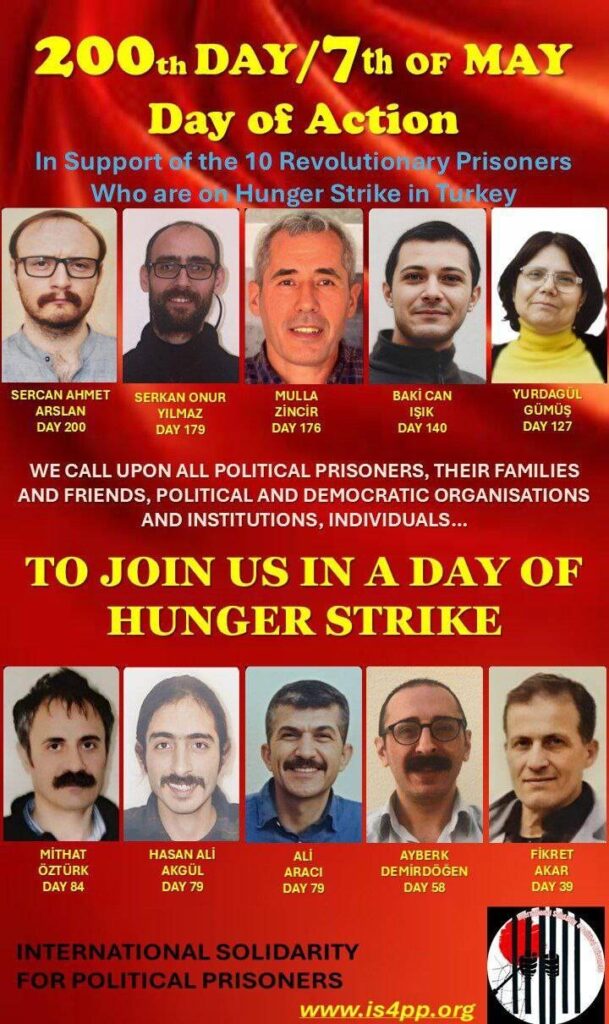It is not just pro-Palestinian students in the U.S. who are facing the threat of deportation. Anti-genocide activists in Germany and Greece are also currently under threat of deportation, an unprecedented move to quash popular support for Palestine.
Source: https://mondoweiss.net/2025/04/how-european-governments-are-using-deportation-to-disrupt-and-criminalize-palestine-solidarity/
In April 2025, Greek administrative judges ruled to postpone the hearings for me and eight other European and British passport holders, who face deportation for our actions in solidarity with Palestine. The nine of us were arrested alongside 19 Greek students, in relation to the occupation of the Athens Law School, in May 2024. As the so-called ‘student intifada’ swept the globe, provoking disproportionate state responses, Greece became the first country to issue deportation orders against anti-genocide activists in Europe.
Back in 2024, the nine non-Greeks were separated, labeled “outside agitators,” smeared in the media, issued deportation orders, and detained in a pre-removal detention center. After a successful appeal for our release and despite being cleared of the various misdemeanor charges we faced, legal action continues against Greece’s attempt to repress, silence, and remove the nine.
Now, almost one year later, and while international students in the U.S. face the same fate, Germany has entered the conversation. In March, Germany’s migration department issued deportation orders to four non-German citizens from Ireland, Poland, and America.
The Intercept reported emails between Germany’s internal security and migration departments show the desperate and illegal move to deport the four was only successful in making a fool of the German state. Citing no legal or migrational basis for their deportation, the initial orders were not signed, until pressure was exerted “from above.” Indeed, on Friday, April 11, a German judge ruled against the deportation of one Irish defendant, deciding there was no legal or constitutional basis.
Giovanni Fassina, Director of the European Legal Support Centre (ELSC), said in a statement: “The audacity with which German authorities bend and undermine the law is shameful.” The ELSC is a Netherlands-based legal organization that defends cases of anti-Palestinian repression across the continent.
The same story played out in Greece, where the state used unprecedented juridical force to enforce Zionist repression. Along with the revocation of residency permits and restrictions on freedom of movement, the state also labeled the nine as “dangers to state security” and “unwanted aliens,” not only to expedite the deportations but to defame us as dangerous “outside agitators.”
The chasm between the legal opinions in the so-called criminal justice system and the harsh orders from central state security departments, in direct contravention of typical procedures and democratic process, reveals the extent of Zionist influence, the undermining of state autonomy and Europe’s spineless collaboration with a genocidal entity.
The Greek State’s heavy-handed crackdown exemplifies the attitude of governments, globally, in acquiescing to Zionist pressure and quashing all forms of popular support for Palestine.
In an interview, Berlin-based lawyer, Alexander Gorski, commented on the egregious circumvention of standard legal recourse enacted by the American and German administrations: “What we’re seeing here is straight out of the far right’s playbook… you can see it in the U.S. and Germany, too: political dissent is silenced by targeting the migration status of protesters.”
Gorski’s final point is of paramount importance. The ease, ability, and speed with which apparently protected rights have been stripped to facilitate unprecedented repression should concern everyone. More worrying is the acquiescence to faceless ‘orders from above’ combined with the willingness to align with and enforce the Zionist agenda.
In Europe, and particularly in Greece, deportation has long since been wielded to suppress opposition to fascism and freedom of speech. In Greece, anti-Palestinian repression and policies have led to penalties and travel bans being secretly issued to people, without any notification. In Athens, some members of the Palestine solidarity movement learned they were banned from re-entering the Schengen Area, simply for their association with the nine deportees.
Two young Egyptian men residing in Athens were also issued deportation orders, after a spate of racially motivated arrests, which coincided with the arrival of an ‘Israeli’ sports team, in November 2024.
While the 14 other people were subsequently released, the two Egyptians were held under administrative detention for weeks. The two have subsequently been released from detention and continue their respective migration processes to officiate their legal right to remain. Ironically, the young men are asylum seekers who journeyed to Greece to avoid persecution for their Palestine politics in Egypt.
Additionally, in December 2024, a community mural was unveiled in Athens, artistically memorializing Bashar and Haytham, two brothers from Gaza. Bashar came to Greece in 2017, where he stayed for two years before leaving for Sweden to seek asylum. Bashar’s asylum claim was rejected by Swedish authorities and he was deported directly back to Gaza, in September 2023. Both brothers were subsequently murdered in the post-October 7 genocidal campaign waged by the occupation. The mural reminds observers how murderous Europe’s borders can be – due to both physical border violence and the political pursuit to fortify frontiers.
Thus, as the imperial boomerang heads home, European citizenry would do well to brace itself to resist the all-encompassing authoritarianism and tools of repression typically leveraged against people from the Global South.
As we see in America, the targeting of overseas students from Global South countries has begun. On March 8, agents of Immigration and Customs Enforcement (ICE) detained Mahmoud Khalil – a green card holder, born in Syria – for his role in the Columbia University Palestine protests. The U.S. administration openly declared Khalil would be the first of many targets in a campaign to unlawfully abduct and deport overseas students for Palestine protests, regardless of their residency or migration status.
On April 11, in contrast to the verdict announced in Germany, a Louisiana court ruled in favor of upholding Mahmoud Khalil’s deportation order. The Palestinian Youth Movement referred to the use of “Cold-War era immigration law”, suggesting the hefty repression is indicative of the centrality of the Palestinian struggle: “Mahmoud’s case, and all the other cases, show us that the struggle for Gaza stands at the center of the fight against fascism and for migrant and democratic rights”.
The green-lighting of Khalil’s deportation sets in motion a dangerous precedent, which will likely impact the plethora of overseas students who have also been approached, detained, disappeared, and deported by ICE, since Khalil’s abduction on March 8. In all cases, U.S. overseas students have had their legal, state-issued visas and permits revoked to facilitate deportation, in complete violation of protected First Amendment rights and the general rule of to law.
The outrageous contravention of rights and basic protections is not new. Non-white, non-European people have long been persecuted simply because their identities are vulnerable to Europe’s racist policing, borders, and administrations, which are often used to keep irregular migrants from entering Europe. Now, no matter the country of origin or skin tone, such power is being used to silence anyone daring to challenge state complicity in the genocide, occupation, and colonization of Palestine.
Such sentiments are evidenced by the steep increase in the criminalization of Palestine solidarity, and identity, which skyrocketed after October 7.
In Greece, one of the nine deportees, who refused to attend their criminal court hearing, claims there is no perceivable legitimacy to the actions of Greece’s so-called ‘law enforcement,’ who acted to repress their advocacy efforts multiple times:
“As an abolitionist, I have no respect for the so-called authority, legal process, or jurisdiction of a state overwhelmingly complicit in aiding and abetting the genocide in Gaza. During my time in Athens, I have spent hundreds of hours in police custody for solidarity gestures, actions and proximity to the cause and people of Palestine. Every single detention was in direct contravention of my freedom of speech and assembly, in a country laughably referred to as the birthplace of democracy.”
Such testimonies are corroborated by the Greek legal team handling the case of the nine: “In the cases where there were protests over the Palestinian issue, there was a terrible overreaction by the Greek government, which abused the police without any measure and no proportionality, and certainly no democratic understanding of the right to protest and assemble” said lawyer Annie Paparrousou in an interview, after the Athens Law School court hearing on March 13.
And in Germany, lawyers report the same. “What we’re seeing are the harshest possible measures available, based on accusations that are extremely vague and in part completely unfounded,” explained Gorski.
In all these deportation cases, a handful of people have had their geographic and residential vulnerabilities preyed upon while being labeled “outside agitators” to manufacture consent for deportation. This follows a tired and predictable narrative historically leveraged to demonize migrants and ‘unwanted aliens’.
Such state pettiness nevertheless holds power. These aggressive actions must be overcome by overwhelming outrage and support for the persecuted. The people have a duty to condemn their government’s abuse of power and tax money. But, crucially, there is foremost a duty to dismantle.
Every deportation order issued simply reveals the fragility and cowardice of each country willing to sign such paperwork. It demonstrates what is known: state structures are not designed or able to establish justice or uphold democracy, they replicate the same fascist expressions as the intolerant Zionist entity.
Unlike the people who embrace risks to stand, honorably, with Palestine, the state legal systems – from the cop shop to court house – rely on lazy loopholes and ‘law reforms’ to facilitate fascist control.
As a political tool to threaten the Palestine solidarity movement, however, deportation will not work.
Dedicated strugglers do not perceive legal implications as deterrents, they are simply indicators of disruptive impact and potential platforms, from which to challenge and dismantle oppressive power structures. Legality has never been the moral compass in revolutionary struggles. This contrasts the behavior of sneaky state actors, who are shaken to their core by groups of people taking self-organized political action for Palestine.
 “Το πουλάκι πέταξε, πάει να φέρει ειρήνη…”
“Το πουλάκι πέταξε, πάει να φέρει ειρήνη…”
